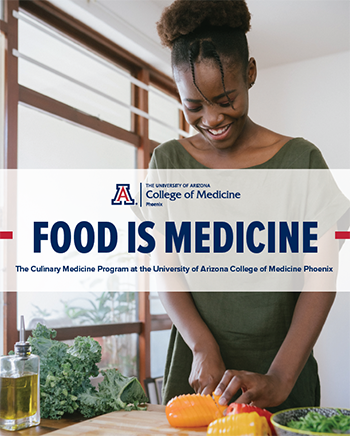Culinary Medicine
Case for Support
Why is Nutrition Important?
Globally, a recent study evaluating the health effects of dietary risks in 195 countries between 1990-2017 found that, “Suboptimal diet is responsible for more deaths than any other risks globally, including tobacco smoking.” According to the Institute for Health Metrics and Evaluation, a poor diet is the number one cause of premature death worldwide — larger than tobacco, alcohol or drug use combined.
In the United States, we lead the world in chronic disease. Dietary risk factors are the single greatest contributor to the development of these chronic diseases and the number one risk factor for premature preventable deaths. This is due in large part to food policies that are at odds with our health. Currently, we use federal tax dollars to make unhealthy processed foods inexpensive and widely available. In addition, food insecurity exacerbates this problem for many people and communities located in "food deserts," where access to healthy, real food is limited by cost and geography.
With the mass production approach to food that is both inhumane and agriculturally destructive to local ecosystems, these unhealthy food policies are accelerating climate change, making the need for a revolutionary change in our food system and food policies critical.
Central to this food revolution is the role of medical professionals — who are the stewards of our health. Despite the critical part that diet plays in preventing the diseases and premature deaths of our time, medical students in the United States only get an average of 19 hours of nutrition education across all four years of medical school.
The gap between our training and the need for nutrition knowledge and skills among physicians is astonishing. For this reason, we must redesign core components of medical education to include evidence-based nutrition content to equip future physicians with the tools they need to use diet in the care and prevention of the medical conditions they will treat. We must also include in this training a whole food systems approach — where future physicians can be educated on the impact of food policies on health equity in the communities of patients that they serve.
